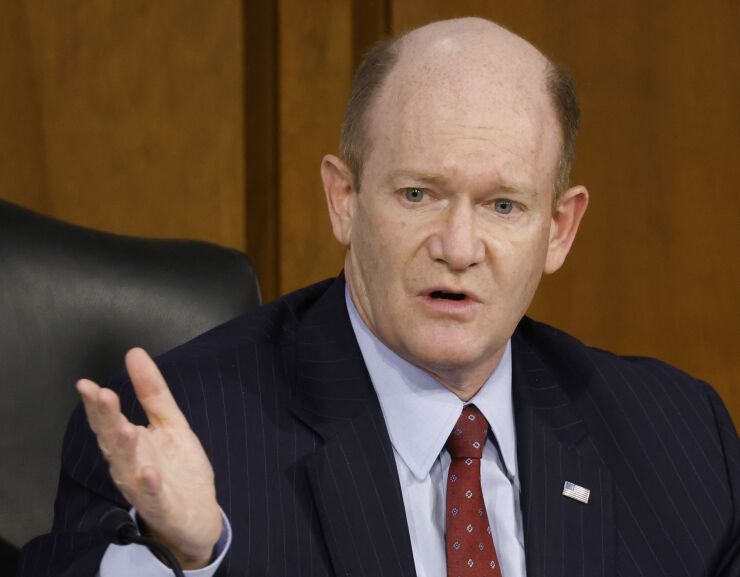WASHINGTON — Senate Democrats failed to pass a resolution to overturn the Office of the Comptroller of the Currency’s rule revamping the Community Reinvestment Act.
The Senate voted 48-43 late Monday to reject a resolution that would have blocked the OCC's May rule from going into effect. The
The OCC is the only regulator to date with a CRA reform regulation on the books. The Federal Deposit Insurance Corp. and Federal Reserve both declined to support the national bank regulator's rule, and the
“The OCC’s final rule is wrong in substance and in process,” said Sen. Chris Coons, D-Del. “In substance, it is unlikely to encourage investment in under resourced and overlooked regions. Instead it expands qualifying CRA activities to include ones that don’t directly benefit communities in need. This OCC rule will cause harm to current investment areas leading to less community development in Delaware and across our nation. … In process, the OCC hasn’t worked to achieve consensus with fellow federal regulators.”

Senate Banking Committee Chairman Mike Crapo, R-Idaho, spoke out on the Senate floor in opposition to the resolution to overturn the OCC’s rule.
“The final rule establishes objective criteria for determining, and an illustrative list of, what qualifies for CRA credit, while also creating a preapproval process for banks. It updates and expands assessment areas to better reflect how banks serve customers today by adding deposit based assessment areas,” Crapo said. “It also incentivizes CRA activity in new areas of need, including Indian country and rural and distressed areas.”
The Senate held the vote under authority granted to lawmakers through the Congressional Review Act, which allows Congress to repeal new regulations.
The House
A spokesperson for Sen. Sherrod Brown, D-Ohio, the ranking member of the Senate Banking Committee, said Democrats were seeking to revoke the rule “because now is not the time to be gutting investment in low- and middle-income communities and communities of color."
“These communities need more access to credit and investment, not less,” the spokesperson added.
The Congressional Review Act enables Congress to overturn new regulations within 60 legislative days of an agency publishing a policy in the Federal Register.
The OCC’s rule, finalized by then-Comptroller of the Currency Joseph Otting, allows banks to receive CRA credit for investments in more low- to moderate-income areas than in the past and includes a list of activities that are normally approved for CRA credit.





